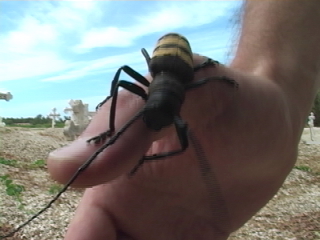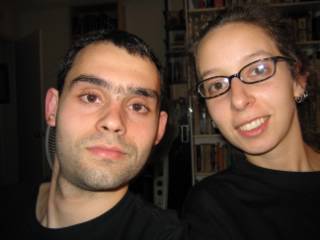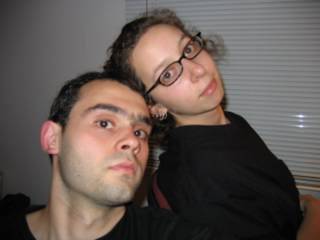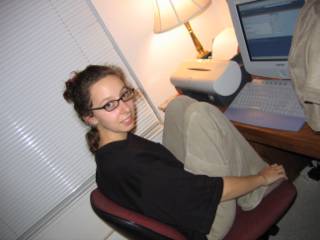partir
that's the title of the new pape diouf album, which is practically playing in stereo on every set of speakers we come across. we just secured a copy, and it is a copy, since original cds in dakar can run up to $50. our version, complete with xeroxed packaging, $6. that's thanks to paul's bargaining skills and the help of a guy wearing a completely yellow outfit who materialized just as we left our hotel this morning.
to get online, we had to purchase a 2" by 3" sealed envelope, simply a corner of a legal-sized envelope that's been chopped down, which contains our timecode. it takes several minutes to navigate the glue, but then you're on and the countdown has begun. your time is good for several months, should you manage to space it out for the duration.
it is our last day in dakar. it's funny how that works: since it's our last day, time feels that much more salient. what do we do on our last day here, after a month in the continent? we may try to do the IFAN museum, this time with a different cab driver.
one thing we forgot to mention yesterday: a common phenomenon here is vendors who frequent highly trafficked areas. when your car stops, expect to be invaded by arms, heads, anything that can fit through a car window, attempting to make a sale. our cab driver yesterday was shopping while driving--pants, jackets, cell phone cases--as we made our (de)tour around the city. consider that. we're lost, everyone's frustrated, he keeps saying "no problem" to us between bargaining in wolof with salesmen. we keep saying "yes, problem," and he's beckoning vendors over from across the street to flip through their merchandise with what seemed to be his meter-long fingers.
our travel consultant, who administered our vaccinations before leaving, seriously advised us to avoid africa's street food, especially given the recent cholera outbreak in senegal. we did that, at first. now, we're popping into every chopshop and drink stall we come across. some of our favorites: sweetened ginger juice in a big plastic bag, ruby red bissap (hibiscus) juice, dark gunpowder tea syrupy with sugar (ataya), nescafe with two inches (they just keep pouring) of sweetened condensed "fat-filled" milk, and lakh, a thick and sweet cow's milk with balls of couscous (in a bag). it's beginning to feel more and more like home.





